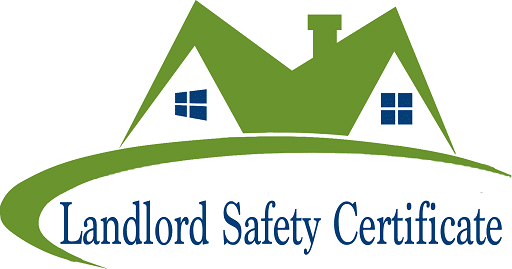
Renting property to students in London can be rewarding, but it comes with unique challenges and responsibilities. As a landlord, you must prioritize safety while maintaining compliance with UK regulations. Student tenants are often living away from home for the first time, so providing a safe and secure environment is essential. By focusing on student rental safety and following practical landlord advice UK, you can protect your tenants, your property, and your reputation.
In this guide, we’ll explore the top five safety tips every London landlord should follow when renting to students.
London is home to some of the UK’s largest universities, attracting thousands of students every year. This influx creates high demand for rental accommodation, especially near major campuses. However, student tenants are often less experienced in spotting safety hazards or understanding their rights.
This is why student rental safety should be a top priority for landlords. Beyond legal obligations, ensuring a safe home builds trust, reduces tenant complaints, and prevents costly penalties. For landlords, the best approach is to adopt a proactive strategy: anticipate potential risks and address them before they become problems.
One of the most crucial responsibilities for landlords is ensuring gas and electrical safety. Under UK law, every rental property must have a valid Gas Safety Certificate renewed annually. Likewise, electrical installations must be inspected at least once every five years with an Electrical Installation Condition Report (EICR).
For student tenants in London, these checks are vital. Many students may not recognize the signs of faulty appliances, such as gas leaks or overloaded sockets. By carrying out inspections on time, landlords protect their tenants from serious risks.
This is where landlord advice UK becomes clear: always keep copies of safety certificates and provide them to tenants at the start of their tenancy. Not only does this prove compliance, but it also reassures students that their home is safe.
Fire safety is a common concern in shared student houses or flats. With multiple tenants, frequent cooking, and heavy use of electrical devices, the risk of fire increases significantly.
To promote student rental safety, landlords should install smoke alarms on every floor and carbon monoxide detectors where necessary. Fire doors, extinguishers, and clear escape routes are also essential in properties classified as Houses in Multiple Occupation (HMOs).
Councils in London are particularly strict on fire safety for student rentals. Inspections are common, and penalties for non-compliance can be severe. By taking proactive steps—such as scheduling regular fire alarm tests—you demonstrate responsibility and protect both tenants and property.
London student accommodation can sometimes be a target for burglary, as shared homes often contain multiple laptops, phones, and personal belongings. As a landlord, you can minimize risks by enhancing property security.
Simple upgrades such as strong locks, secure windows, and motion-sensor lighting make a big difference. For HMOs, consider installing a main entrance security system, such as a coded entry door.
Offering landlord advice UK, many housing experts recommend briefing student tenants about basic security practices. For example, encouraging them to lock doors when leaving the house and avoid leaving valuables in plain sight helps reduce crime risks.
Good security not only reassures tenants but also boosts your property’s appeal in a competitive rental market.

While safety is often linked to hazards like gas or fire, comfort and energy efficiency also play a role in student rental safety. Cold, damp, or poorly insulated homes can lead to health problems for tenants.
In London, landlords must ensure their rental properties meet the minimum EPC rating of E. Upgrading insulation, fixing drafts, and maintaining heating systems are essential steps. Students may not always report these issues immediately, so landlords should schedule routine checks.
By making energy-efficient improvements, landlords not only comply with regulations but also reduce tenant complaints and improve satisfaction. In fact, many parents who help their children find housing specifically look for warm, energy-efficient properties.
Communication is often overlooked in student rentals, yet it plays a big role in student rental safety. Many students are first-time tenants and may not fully understand tenancy rules, safety steps, or how to report problems.
Following landlord advice UK, provide tenants with simple written instructions for emergencies, such as shutting off the gas, reporting electrical issues, or responding to alarms. A short welcome guide or safety checklist also encourages early reporting of repairs.
When students feel informed and supported, they respect the property more and follow safety rules, ensuring safer rentals for everyone.
Some landlords underestimate the consequences of neglecting compliance. In London, councils regularly inspect rental properties and take enforcement action against unsafe student housing. Penalties include fines of up to £30,000, rent repayment orders, or even banning orders in severe cases.
These risks highlight why student rental safety must never be an afterthought. The cost of compliance—whether for certificates, fire equipment, or property upgrades—is always lower than the financial and reputational damage of neglect.
Renting to students in London offers excellent opportunities, but it also requires landlords to step up their responsibilities. From gas and electrical checks to fire safety, security, energy efficiency, and communication, each area plays a vital role in ensuring student rental safety.
By following practical landlord advice UK, landlords can avoid penalties, maintain strong reputations, and keep tenants safe. Most importantly, these efforts build trust—both with students and with their families—ensuring long-term rental success in London’s competitive property market.
Safety isn’t just about legal compliance; it’s about creating a secure environment where students can focus on their studies without worrying about risks. For London landlords, prioritizing safety is not just smart business—it’s the foundation of a successful rental strategy.

